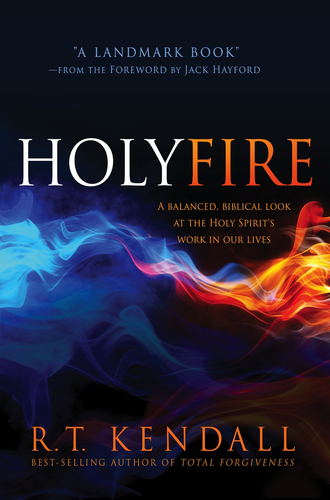The Bible’s Undertaker: Cessationism in Contrast to a Living, Miraculous Christianity
 On the issue of tongues, MacArthur continues his unfounded analysis. He charges that “there is no New Testament warrant for the modern charismatic practice of vainly repeating gibberish, either at home by oneself or especially at church during a group session of indecipherable mass numbers.”[36] He completely dismisses tongues as psychobabble contending that “all efforts to reconcile the biblical miracle of speaking foreign languages and the modern practice of nonsensical jabber fail.”[37] Ultimately, MacArthur ignores the Pauline injunction “covet to prophesy, and forbid not to speak with tongues.” (1 Cor. 14:39).
On the issue of tongues, MacArthur continues his unfounded analysis. He charges that “there is no New Testament warrant for the modern charismatic practice of vainly repeating gibberish, either at home by oneself or especially at church during a group session of indecipherable mass numbers.”[36] He completely dismisses tongues as psychobabble contending that “all efforts to reconcile the biblical miracle of speaking foreign languages and the modern practice of nonsensical jabber fail.”[37] Ultimately, MacArthur ignores the Pauline injunction “covet to prophesy, and forbid not to speak with tongues.” (1 Cor. 14:39).
On the other hand, reformed charismatic R. T. Kendall discerns that MacArthur’s “cessationism quenches the Spirit.”[38] His significant book Holy Fire presents a balanced biblical example the Holy Spirit’s work. Kendall aptly perceives the motives of cessationism as he notes,
Cesssationism is a hypothesis. It is not a teaching grounded in Holy Scripture—like the virgin birth, the deity of Christ, the resurrection of Jesus, and salvation by the blood of God’s Son. Cessationists have chosen to believe that God does not reveal Himself directly and immediately today.[39]
Regrettably, those who follow the principles of cessationism have adopted a secular Enlightenment worldview to justify their beliefs. It is telling that both fundamentalists and liberal historical criticism utilize Enlightenment concepts as the basis for their presuppositions. Mainline Protestant Christianity rarely aligns itself with fundamentalism and yet on this topic, they are in unison.
“Jesus Christ is the same yesterday, and today, and forever” (Heb. 13:8).
PR
Notes
[1] Jon Ruthven, On the Cessation of the Charismata: The Protestant Polemic on Postbiblical Miracles Journal of Pentecostal Theology Supplement Series, no. 3, ed. John Christopher Thomas, Rick D. Moore, and Steven J. Land. (Sheffield: Sheffield Academic Press, 1993), 3.
[2] Gerald Bray, ed. 1,2 Corinthians. Ancient Christian Commentary on Scripture New Testament Vol. VII. (Downers Grove, IL: InterVarsity Press, 1999), 146.
[3] J.H.S. Burleigh, ed. Augustine: Earlier Writings, Library of Christian Classics (Philadelphia: Westminster Press, 1953), 248.
[4] Translated by H. Browne, From Nicene and Post-Nicene Fathers, First Series, Vol. 7. Edited by Philip Schaff. (Buffalo, NY: Christian Literature Publishing Co., 1888.) Revised and edited for New Advent by Kevin Knight. Accessed August 14, 2014, http://www.newadvent.org/fathers/170206.htm.
[5] Translated by Marcus Dods, From Nicene and Post-Nicene Fathers, First Series, Vol. 2. Edited by Philip Schaff. (Buffalo, NY: Christian Literature Publishing Co., 1887.) Revised and edited for New Advent by Kevin Knight. Accessed August 14, 2014, http://www.newadvent.org/fathers/120122.htm
Category: Spirit, Summer 2015


